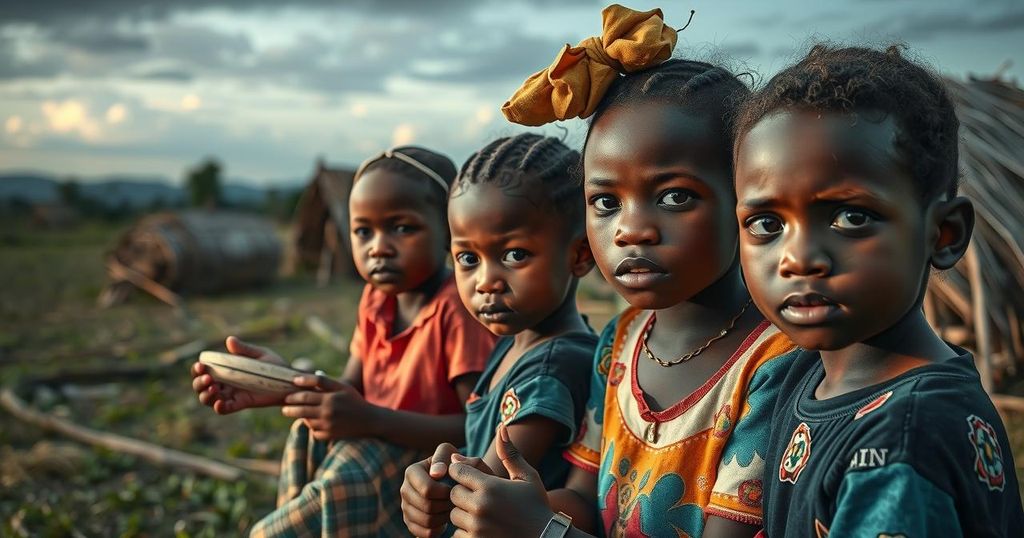Children in Northern Madagascar Face Critical Threat from Cyclone Dikeledi
Tropical Cyclone Dikeledi is set to impact Northern Madagascar, risking the lives of over 22,500 children with severe winds and flooding. Save the Children is urging for urgent humanitarian aid and increased climate funding from wealthier nations to support affected communities. The situation underscores the escalating threat of extreme weather events due to climate change.
Over 22,500 children in Northern Madagascar are preparing for the imminent impact of Tropical Cyclone Dikeledi, which is expected to bring fierce winds, torrential rains, and significant flooding to the region. In response to the severe weather forecast commencing January 11, authorities have initiated widespread evacuations. The meteorological department has noted that the area has already experienced substantial rainfall, raising concerns of further damage in the coming days.
Historically, Madagascar previously avoided the worst effects of storms, such as Tropical Storm Chido in December, which tragically claimed 39 lives in Mayotte. Unfortunately, however, Dikeledi marks the second tropical cyclone to threaten Southern Africa this season, and its anticipated landfall is seen as a potential disaster.
Save the Children has highlighted the increase in frequency of such extreme weather events attributed to climate change, emphasizing the urgent need for increased financial support from wealthier nations to assist poorer countries grappling with these challenges. Tatiana Dasys, the Country Representative for Save the Children in Madagascar, expressed deep concern about the vulnerability of over 22,500 children, stating that many risk displacement, injury, or worse due to the cyclone.
“From past experience, the cyclone is likely to cause extensive damage to residential areas and vulnerable yet vital public infrastructure such as schools and hospitals,” stated Ms. Dasys. The forecast predicts heavy rainfall, potentially reaching 100 mm in the northern regions, further exacerbating flood risks and possibly leading to a humanitarian crisis.
In anticipation of the cyclone, Save the Children has mobilized resources in the northern region, implementing preparedness measures within schools and communities to counteract the cyclone’s effects. The organization asserts the necessity for immediate humanitarian aid and rescue operations to alleviate the suffering of those impacted. In addition, Save the Children has called upon affluent nations to escalate climate financing to assist lower-income countries most affected by climate change.
Save the Children has been active in Madagascar since 2016, focusing on essential support such as cash assistance and child protection in response to various crises, including cyclones and droughts, assisting more than 12,700 children in its programs through 2024.
Tropical Cyclone Dikeledi poses a severe threat to Northern Madagascar, where communities are vulnerable to extreme weather impacts exacerbated by climate change. The increasing frequency of such storms underscores an urgent need for international assistance and sustainable funding to help mitigate the effects faced by lower-income nations. Agencies like Save the Children are pivotal in addressing immediate humanitarian needs while advocating for systemic support from wealthier counterparts.
Tropical Cyclone Dikeledi presents a significant risk to Northern Madagascar, endangering the lives of thousands, particularly children. As communities brace for impact, the necessity for swift humanitarian aid is paramount. Increased global funding is essential to support lower-income countries in adapting to climate change and its disastrous consequences, ensuring that vulnerable populations are protected during such crises.
Original Source: www.africa.com




Post Comment